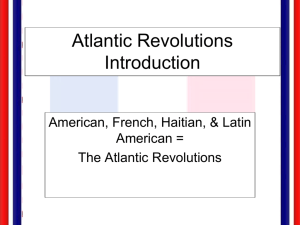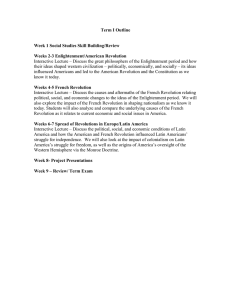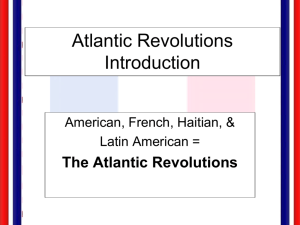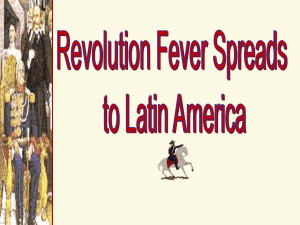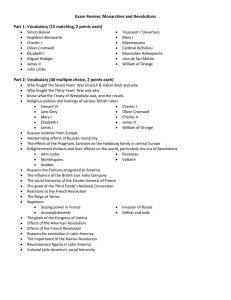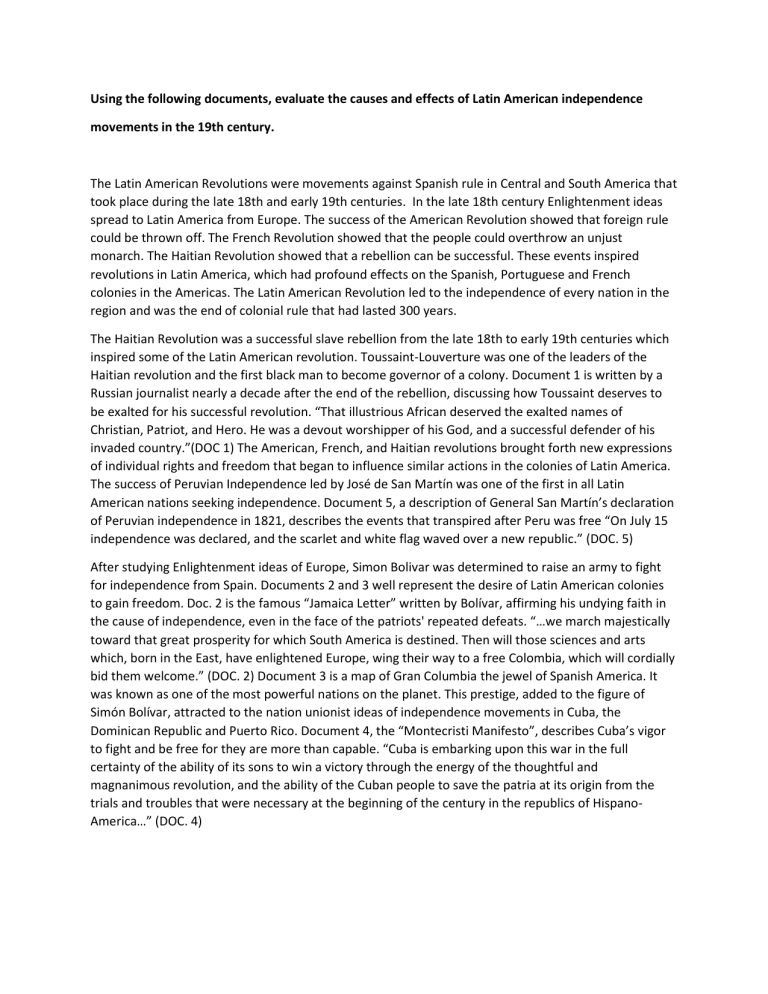
Using the following documents, evaluate the causes and effects of Latin American independence movements in the 19th century. The Latin American Revolutions were movements against Spanish rule in Central and South America that took place during the late 18th and early 19th centuries. In the late 18th century Enlightenment ideas spread to Latin America from Europe. The success of the American Revolution showed that foreign rule could be thrown off. The French Revolution showed that the people could overthrow an unjust monarch. The Haitian Revolution showed that a rebellion can be successful. These events inspired revolutions in Latin America, which had profound effects on the Spanish, Portuguese and French colonies in the Americas. The Latin American Revolution led to the independence of every nation in the region and was the end of colonial rule that had lasted 300 years. The Haitian Revolution was a successful slave rebellion from the late 18th to early 19th centuries which inspired some of the Latin American revolution. Toussaint-Louverture was one of the leaders of the Haitian revolution and the first black man to become governor of a colony. Document 1 is written by a Russian journalist nearly a decade after the end of the rebellion, discussing how Toussaint deserves to be exalted for his successful revolution. “That illustrious African deserved the exalted names of Christian, Patriot, and Hero. He was a devout worshipper of his God, and a successful defender of his invaded country.”(DOC 1) The American, French, and Haitian revolutions brought forth new expressions of individual rights and freedom that began to influence similar actions in the colonies of Latin America. The success of Peruvian Independence led by José de San Martín was one of the first in all Latin American nations seeking independence. Document 5, a description of General San Martín’s declaration of Peruvian independence in 1821, describes the events that transpired after Peru was free “On July 15 independence was declared, and the scarlet and white flag waved over a new republic.” (DOC. 5) After studying Enlightenment ideas of Europe, Simon Bolivar was determined to raise an army to fight for independence from Spain. Documents 2 and 3 well represent the desire of Latin American colonies to gain freedom. Doc. 2 is the famous “Jamaica Letter” written by Bolívar, affirming his undying faith in the cause of independence, even in the face of the patriots' repeated defeats. “…we march majestically toward that great prosperity for which South America is destined. Then will those sciences and arts which, born in the East, have enlightened Europe, wing their way to a free Colombia, which will cordially bid them welcome.” (DOC. 2) Document 3 is a map of Gran Columbia the jewel of Spanish America. It was known as one of the most powerful nations on the planet. This prestige, added to the figure of Simón Bolívar, attracted to the nation unionist ideas of independence movements in Cuba, the Dominican Republic and Puerto Rico. Document 4, the “Montecristi Manifesto”, describes Cuba’s vigor to fight and be free for they are more than capable. “Cuba is embarking upon this war in the full certainty of the ability of its sons to win a victory through the energy of the thoughtful and magnanimous revolution, and the ability of the Cuban people to save the patria at its origin from the trials and troubles that were necessary at the beginning of the century in the republics of HispanoAmerica…” (DOC. 4) The Latin American Revolution were caused in part to previous revolutions, but also due to the Enlightenment and nationalism. The Enlightenment was a period of history devoted to the study and exploration of new ideas in science, politics, the arts, and philosophy. The ideals of the Enlightenment inspired a wave of independence movements and revolutions throughout the Americas and Europe that promoted liberty and other democratic values. This sense of national identity and pride both fueled the expansion of empires and, in this case, occurred as a reaction against foreign rule.
